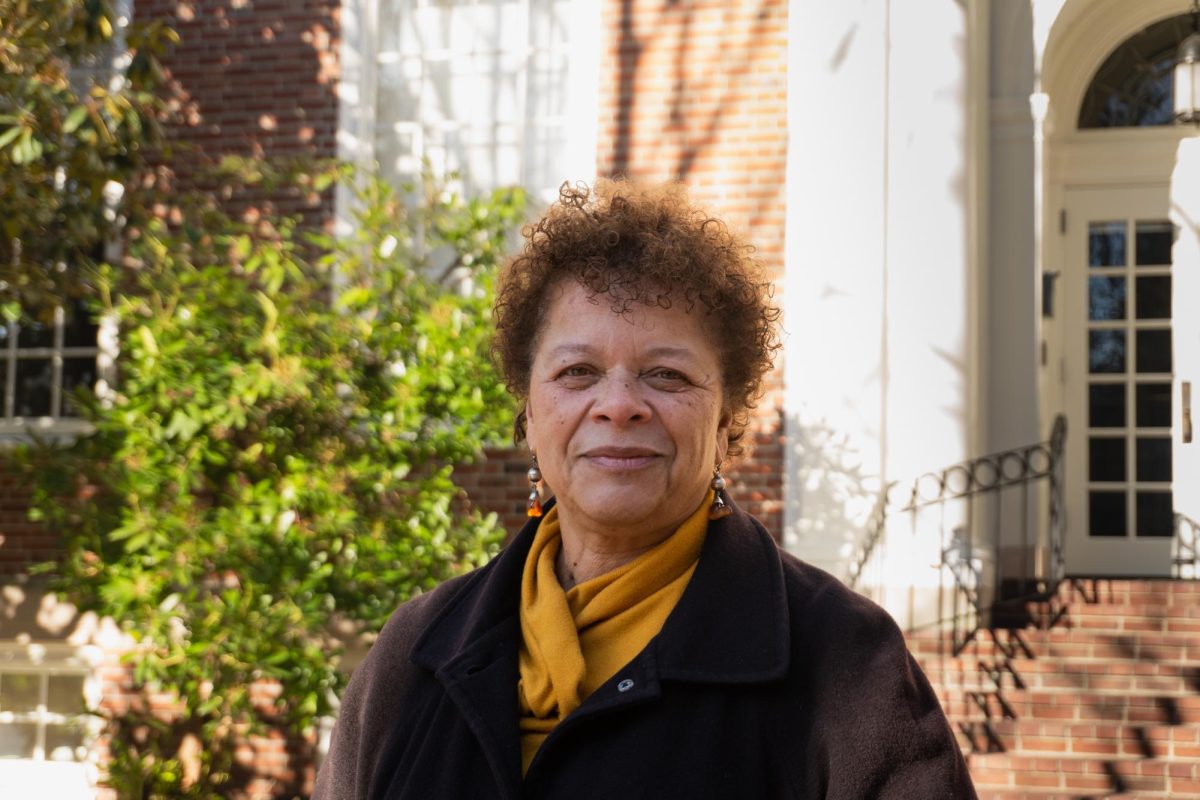It’s understood by students that most teachers have lives outside of school. Few students, however, expect their teachers to have published multiple books, and an even slimmer number anticipate award-winning playwrights and novelists in the classroom. It’s no wonder, then, that most students aren’t conscious of history teacher Nancy Rawles’s career, which, in addition to writing stories, spans a journalism degree and background in theater.
Ms. Rawles doesn’t seem to mind the lack of fuss and feathers, though. “Seattle is a very internal place,” she explains. “A place less about seeking glory and more for quiet introspection.” She elaborates that Seattle rewards “finding your people” as opposed to the general warmth that places in the South have to offer. Having spent more than half her life in Seattle after a childhood in Los Angeles raised by parents from Louisiana, she has more to say than most.
Geography has had a significant impact on Ms. Rawles and her work, primarily her four books. An example of this comes from her childhood: “My parents came out of the segregated South. They were part of the Great Migration of African-Americans moving all over the country […] So history was terribly important to them.” Ms. Rawles’s parents grew up in Louisiana, a place that she describes as having a fascinating past that continues to impact her.
“They would talk about historical figures as if they were friends […] History was very alive for them.” This familiarity with history spilled over into Ms. Rawles, who originally went to college for journalism, which she describes as “history in the making.” She began writing plays soon after, and one was performed while she was still in college. Books came later and were notably a medium that Ms. Rawles had never considered. When she did, though, they opened up myriad unique opportunities.
“I loved plays, and I loved the collaborative process of plays. It wasn’t clear to me that I would ever write books at all […] But I was able to go deeper in a book […] In a book you can put in all this context and description and those things. And, at some point, I think I just wanted to be able to do it all.”
Ms. Rawles’ books are mostly historical fiction and inspired by what she or her parents grew up with. Examples of this are Love Like Gumbo and Crawfish Dreams, a duology set in the ‘70s in South Central Los Angeles, following a Creole daughter and mother respectively. Crawfish Dreams draws parallels between the mother character, who in the story moved from Louisiana to Los Angeles as a young bride, and Ms. Rawles’ own parents, who grew up in Louisiana and later moved, raising Ms. Rawles in Los Angeles. These parallels are also seen in Love Like Gumbo, where the protagonist Grace Broussard, a 20-year-old Creole lesbian navigates between her traditional family and her love for her girlfriend. While perhaps not an exact parallel, Ms. Rawles describes how she, too, navigated between being true to herself while also staying true to her beliefs, culture, and family in her 20s. Writing Love Like Gumbo helped to sort through her own feelings.
Ms. Rawles’s writing isn’t solely inspired by her own experiences, however. Arguably her most popular novel, My Jim, was written to be an accompaniment to the famed Adventures of Huckleberry Finn. It centers on the wife of Jim, who in the original story was a Black man fleeing slavery, accompanying the eponymous main character. This book is distinct from the rest of Ms. Rawles’ canon in terms of utilizing locations familiar to her, but the story of why she wrote it still involves her family.
“I wrote that book because my daughter, as she was growing up in the Pacific Northwest, wasn’t surrounded by many African-American people, and Huckleberry Finn was being taught in classes, […] and I thought ‘Oh, she might end up in a high school class where this book is being read, and I would really like her and others to have a book that was a companion to the original book that showed a different viewpoint.’”
Mostly, though, Ms. Rawles’ approach to books is closely tied to her love for history. By doing this, she contextualizes larger historical events for readers. While she hasn’t written a book in a long time, she does continue to focus on individual stories, writing periodicals or essays about historical figures.
“Writing has been a great kind of learning and teaching for me,” she says. “By telling an individual’s story and putting it against the backdrop of history, it’s clear that what happens to individuals happens to entire communities. My parents were part of the Great Migration, and there were millions of other people going through the same thing.
Ms. Rawles says this and pauses, but something (perhaps her latent journalism degree) wins out in her and she continues with a smile: “Everybody’s got a story, though. It’s very true, and you’ve got to listen to it.”



